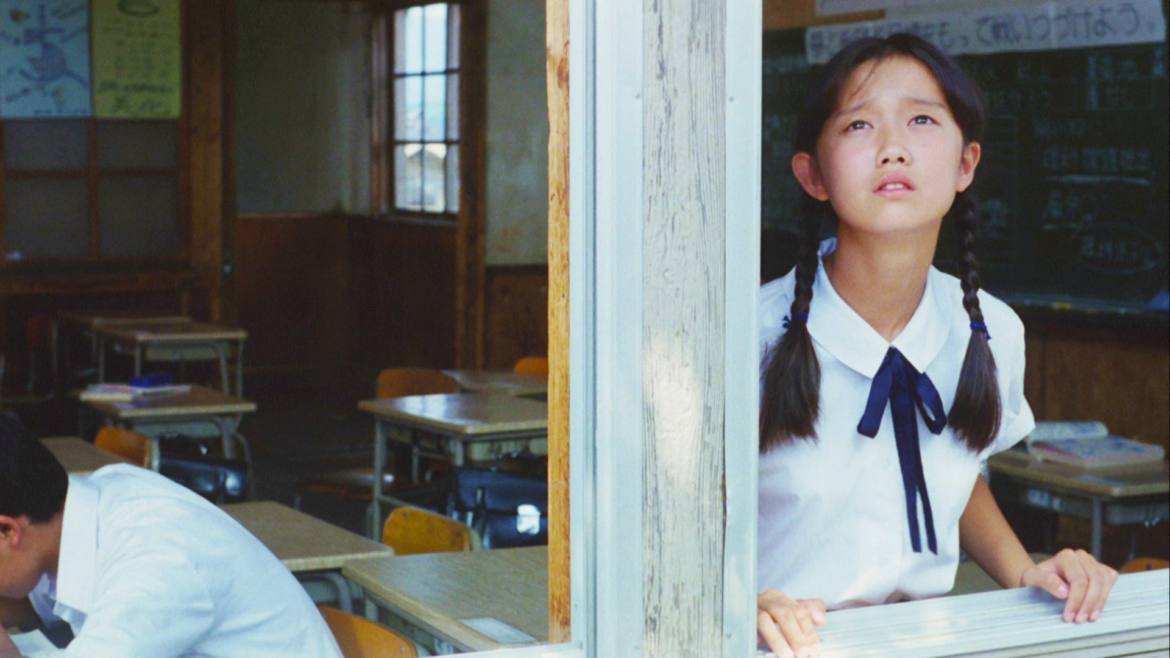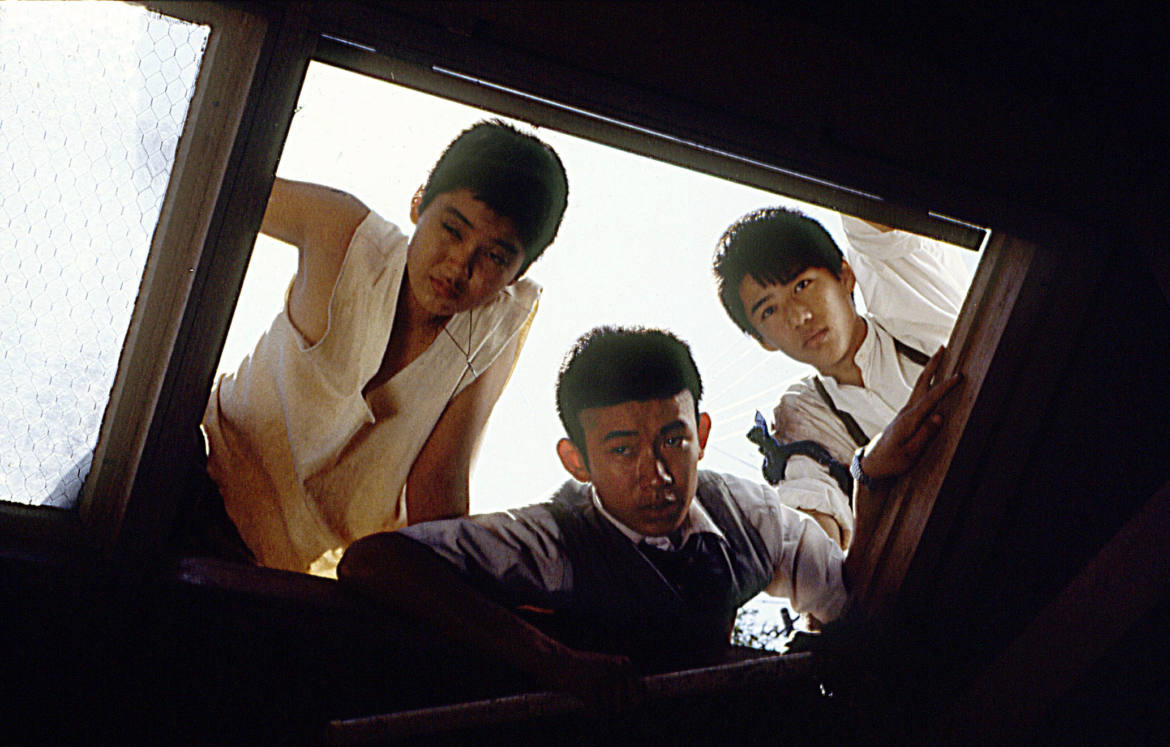Events
Film
09/09/2023 - 09/20/2023
New York, NY
Two Films by Shinji Somai: Typhoon Club (4K Restoration) & P.P. Rider

Time and Location
September 8- 20
IFC Center (New York, NY)
About
Known for his signature long-take style, with acrobatic shot sequences making audacious use of cranes and dollies, and the highly physical, unrestrained performances of his actors, in films often fueled by the anarchic energy of youth, Somai was a pivotal figure of Japanese cinema in the 1980s, a keystone between the collapse of the studio system and the emergence of a new generation of independent filmmakers. In a lively career tragically cut short (he completed 13 films before his untimely death in 2001, aged 53), Somai developed a profoundly idiosyncratic way of working, often adhering to popular genre modes but completely unbeholden to their conventions. Instead, he disrupted the usual flow of narrative to foreground the artifice and invention of his camera, venturing out into space to match the volatility of his performers, and to urge them along in a dance at once precisely designed and wholly off-the-cuff. He injected his films with such an unwieldy feeling for life that his shots often appear to be coming undone at the seams.
As critic Shigehiko Hasumi put it: “While it never had the fluid movement of Mizoguchi or Ophuls, Somai’s camera persevered, risking the appearance of clumsiness, nestling against his characters’ unpredictable behavior, now hesitant, now abruptly decisive.” In an effort to strip away affectation and bring out unstudied states of being in his performers, Somai preferred to work with amateur and first-time actors, and he nurtured the careers of many young talents in the process, including Masatoshi Nagase and Yuki Kudo (both of whom would later star in Mystery Train by Jim Jarmusch). In 1982, alongside fellow filmmakers Kiyoshi Kurosawa, Kazuhiko Hasegawa, Sogo Ishii, and others, Somai founded the Director’s Company, a pioneering independent production unit; its mission: to give filmmakers artistic and financial freedom in the twilight years of the Japanese movie industry. Somai was held in the highest stature by his generation of cineastes and critics, voting him the greatest Japanese filmmaker of the 1980s, and his lasting impact can be traced in the work of many of today’s luminaries, from Kiyoshi Kurosawa to Ryusuke Hamaguchi. Long unavailable in North America, the revival of these two works will, we hope, herald in the recognition of one of the most personal and vital bodies of work in all of cinema.
SYNOPSES
TYPHOON CLUB – New 4K Restoration
1985 / 115 min / 4K / Color In Japanese with English subtitles
Winner of the Grand Prix at the first Tokyo International Film Festival in 1985, Typhoon Club is widely regarded as the seminal film of director Shinji Somai’s career. A work of raw,elemental power, it follows an ensemble of junior high students in a provincial town, beset by a summer-y malaise as a typhoon looms. When the storm makes landfall, the teens find themselves holed up in their school unsupervised, while another classmate (Yuki Kudo) disappears alone on a harrowing trek to the big city. Set adrift in a world suddenly unmoored, the students let loose their pent-up angst and burgeoning passions in a series of propulsive, phantasmic scenes—part apocalypse, part utopia—as the deluge rages on into the night. Observed in daring long takes, director Somai gives material form to the students’ turbulent inner lives. When day breaks and the rains let up, the youngsters open their eyes to a world in ruins—or a world renewed. The 10th best Japanese film of all time, according to Japan’s Kinema Junpo poll.

P.P. RIDER
1983 / 118 min / HD / Color In Japanese with English subtitles
An exuberant farce tinted with deep shades of melancholy and real violence, P.P. Rider is an ode to the dreams of youth against authority. The film centers on three teens on a burlesque odyssey to rescue their kidnapped class bully from a gang of yakuza. En route they run afoul of some cops, befriend a motley former gangster, and experience the first seismic shocks of growing up. More immediately, the youngsters climb on things and jostle and fall down and sing and take up space, carried along less by the search for their classmate than by the sheer momentum of being young and alive. Director Shinji Somai constantly invents astonishing new ways to capture their movements, including a mythic opening shot, which—according to legend—required the use of three cranes. Adapted from a scenario by Leonard Schrader—with assistance from Howard Hawks—it’s a film of unparalleled freedom, and a testament to Somai’s ability to inject his work with the potent marrow of life.
For more information visit the IFC Center Website.